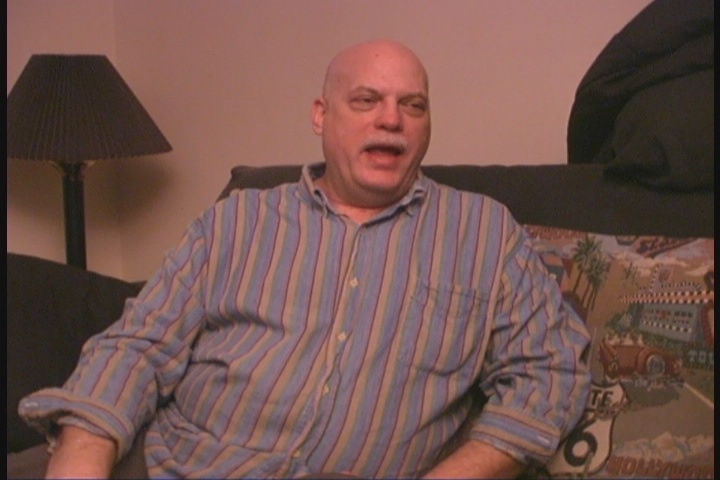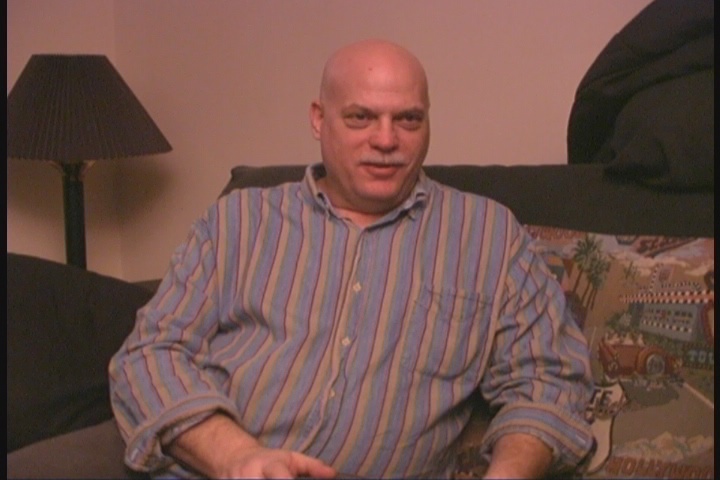Randy Suess' interest in my documentary was somewhat minimal, or at least his
interest in being interviewed by me. I'd sent a number of letters to him, but
it didn't look like it was going to happen. I'm not the type of person who
thinks he's doing everyone a big huge favor by interviewing them with my
camera, so I was prepared to respect his wishes and work around his missing
presence in the interviews with maybe an older still photo or two.
The fact that an interview did happen is directly the result of the efforts
of Peter Zelchenko, a technology writer and historian (among many other things)
who was also very helpful in my interview of Ward Christensen. Peter was not
prepared to let Randy miss being in the documentary if there was any way it
could be facilitated, and it was his phone calls, suggestions, and pizza that
made the whole thing happen.
We arrived at Randy's apartment and after discussing some current events
set up in his living room, where I peppered questions involving CBBS and his
thoughts on BBS history. Randy was gracious and quite funny as he talked
about the process of working on the hardware side of CBBS and his later
projects, and giving his opinions on triumphs and failures in the whole idea
of bulletin board systems. We skipped around to a lot of subjects, since he'd
been involved with them for so long and I wanted them to weigh in. Peter also
chimed in with some excellent theories and questions for Randy to work from.
I showed Randy some of the work I'd been doing in other quarters with the
documentary, and he seemed at least somewhat pleased at the project. I was
grateful for his time, and again to Peter to making it all come through. I'd
always had Randy on the "Must Interview" list, and I was delighted it'd
become a reality.
From Randy's, after dropping Peter off at his home, I fired into the night,
driving the hundreds of miles to my interview for the next morning, in Fort
Wayne, Indiana. Randy's new additions to the history of the BBS rang in my
head the whole way.

